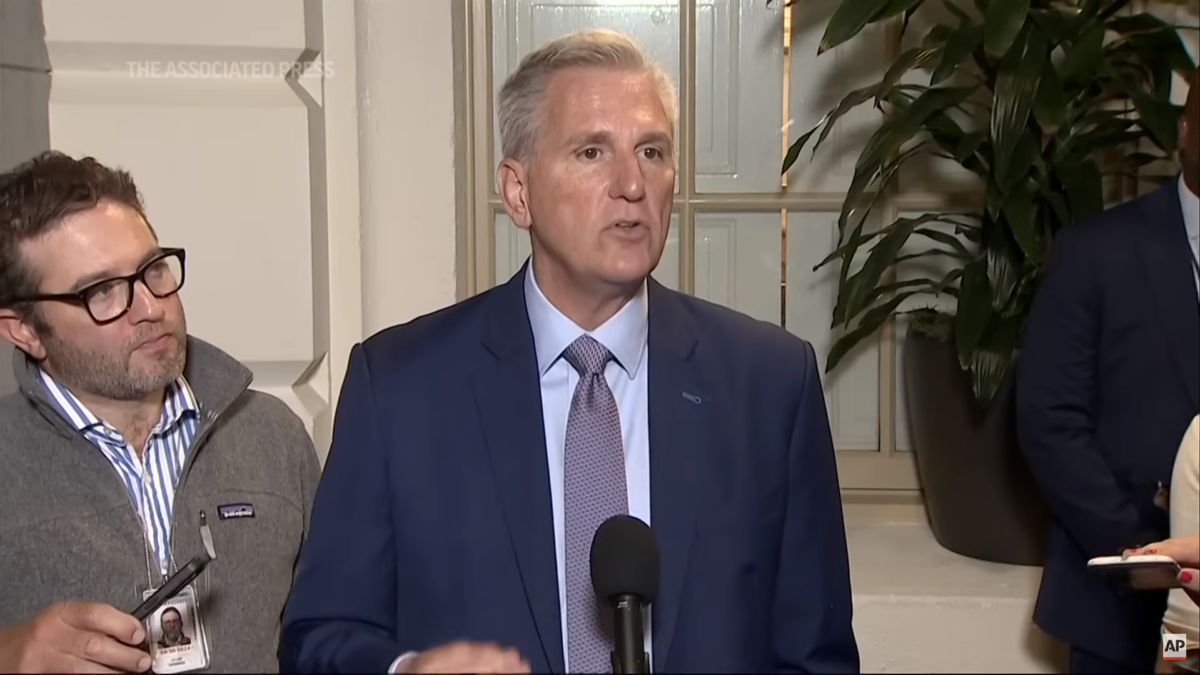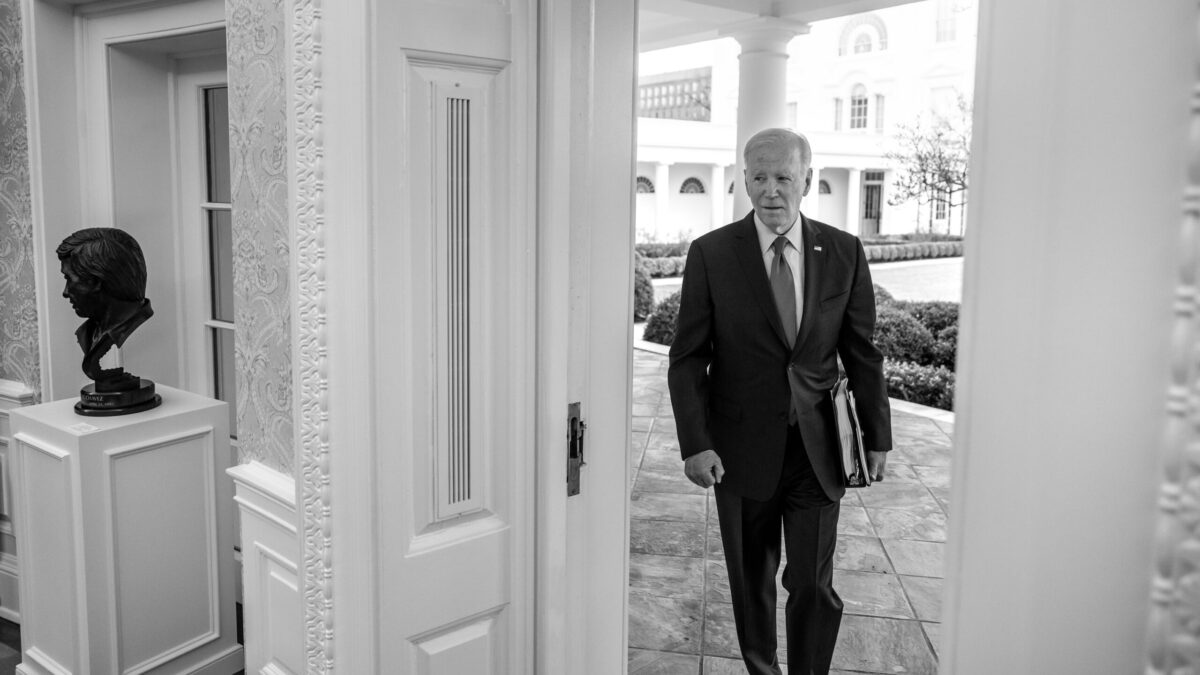Even as the national debt now exceeds $33 trillion, conservatives can take some measure of solace in the ways they are reducing spending. Washington isn’t reducing the national debt — not by a long shot, sadly — but having a Republican majority means conservatives can succeed at some modest measures of damage limitation.
Two weeks ago, I analyzed in these pages why Republicans wanted to pass legislation extending a mandatory spending program originally created by Vermont Sen. Bernie Sanders as part of Obamacare. Last week, House leaders tried to bring that bill to the floor — but abandoned their efforts before it even came up for a vote.
The story of this policy U-turn demonstrates conservatives’ influence in preventing new spending and the pressure points in the ongoing debate over next year’s budget.
Rules Violation
In my piece, I noted that the measure contained 10 years of budgetary savings to fund two years of spending. I didn’t realize it at the time (although I should have), but that rubric violates the rules instituted by the new Republican majority in January. Specifically, the CUTGO rule — Clause 10(a) of Rule XXI of the House (page 41 here) — states that legislation cannot increase mandatory spending over its first five or 10 years.
Page two of the Congressional Budget Office (CBO) score of the updated legislation tells the tale. The bill would increase mandatory (i.e., direct) spending by $11.9 billion in its first five years, and $3.8 billion in its first 10 (the outlay numbers listed below):

While CBO stated the bill would reduce the deficit over 10 years, because some provisions in the measure (not explicit tax increases) would generate additional revenue, the House’s CUTGO rules don’t allow these types of “tax-and-spend” gambits. Nor does CUTGO allow for a “spend now, save later” approach. The bill clearly violated House rules — and conservatives knew it.
‘House of Cards’ Collapses
House leaders wanted to bring the bill to the floor under suspension of the rules, which theoretically would mean they could circumvent the CUTGO violation explained above. But suspending the rules requires a two-thirds majority, and some Democrats — who wanted even more spending and regulations added to the bill — already seemed ambivalent about the measure.
Last Monday, as congressional members and staff examined the schedule for the week ahead, several conservative offices questioned why Republican leaders were bringing a bill to the floor that:
- Spent more than $15 billion, and contained myriad new regulations and programs, under suspension of the rules — a procedure normally reserved for noncontroversial items like naming post offices;
- Violated the House’s CUTGO rules for fiscal discipline, as outlined above;
- Served to circumvent caps on discretionary spending at the same time conservatives are fighting to lower those caps; and
- Raided Medicare by billions of dollars to fund spending elsewhere within the health care system, just like Democrats did in Obamacare.
Based on the chatter I heard from congressional offices, many seemed to be asking the question posed by the great Vince Lombardi: “What the h-ll’s going on out here?”
Early reports claimed congressional leaders pulled the bill from consideration because Democrats (who, again, wanted more spending, not less) would not support the legislation. But I have seen numerous occasions during my time on Capitol Hill where the majority (in this case Republicans) plays a game of “chicken” with the minority, and dares the minority to vote down a bill on the suspension calendar. Republican leaders didn’t even try to go down that route.
In short: Republican leadership pulled the bill because their own side — rightly — wouldn’t vote for it. It was also another distraction for Republican leaders, at a time they should be focused on the main spending fight, such that even talking about bringing the bill to the floor was an unforced error.
Ominous Omnibus?
The fight over the health care bill in many ways presages what could happen at the end of the year. Even if the health care measure had passed the House, it seemed unlikely to pass the Senate as a stand-alone measure.
Instead, House leaders will likely try and attach the 231-page health care legislation to an omnibus spending bill right before Christmas. That’s how omnibus bills become gargantuan pieces of legislation totaling 4,000 or 5,000 pages: Congressional leaders slap together all manner of bills that can’t pass on their own, turning the omnibus into a giant “Christmas tree” of spending that no one has time to read or understand, not even the staffers who write the bills.
But the omnibus will face some of the same problems last week’s health care bill did. It will almost certainly violate CUTGO for increasing mandatory spending, not to mention other provisions of House rules. As such, the omnibus will require the House Rules Committee to pass a special rule for the bill waiving CUTGO and other procedural violations.
But the three conservatives on the House Rules Committee — Republican Reps. Ralph Norman of South Carolina, Thomas Massie of Kentucky, and my friend and former colleague Chip Roy of Texas — seem unlikely to approve floor action on a bill that violates House rules designed to control spending. House leadership didn’t even bother asking them to do so for last week’s health care bill. They instead tried to get the full House to suspend the rules, which turned into the box canyon that forced leadership to pull the bill off the floor.
If Norman, Massie, and Roy refuse to support floor action on an omnibus that violates House rules, the omnibus would not get out of the House Rules Committee — unless Republican leaders rely on Democrat votes to do so. Will the conservatives, on the Rules Committee and elsewhere, stand firm? And if they do, will House Speaker Kevin McCarthy, R-Calif., rely on Democrat votes to ram through yet another swampy omnibus measure?
Those are the key questions over the coming weeks and months. Conservatives won a battle to stop Washington spending last week. The question will be whether, and how, they can win the larger war.









